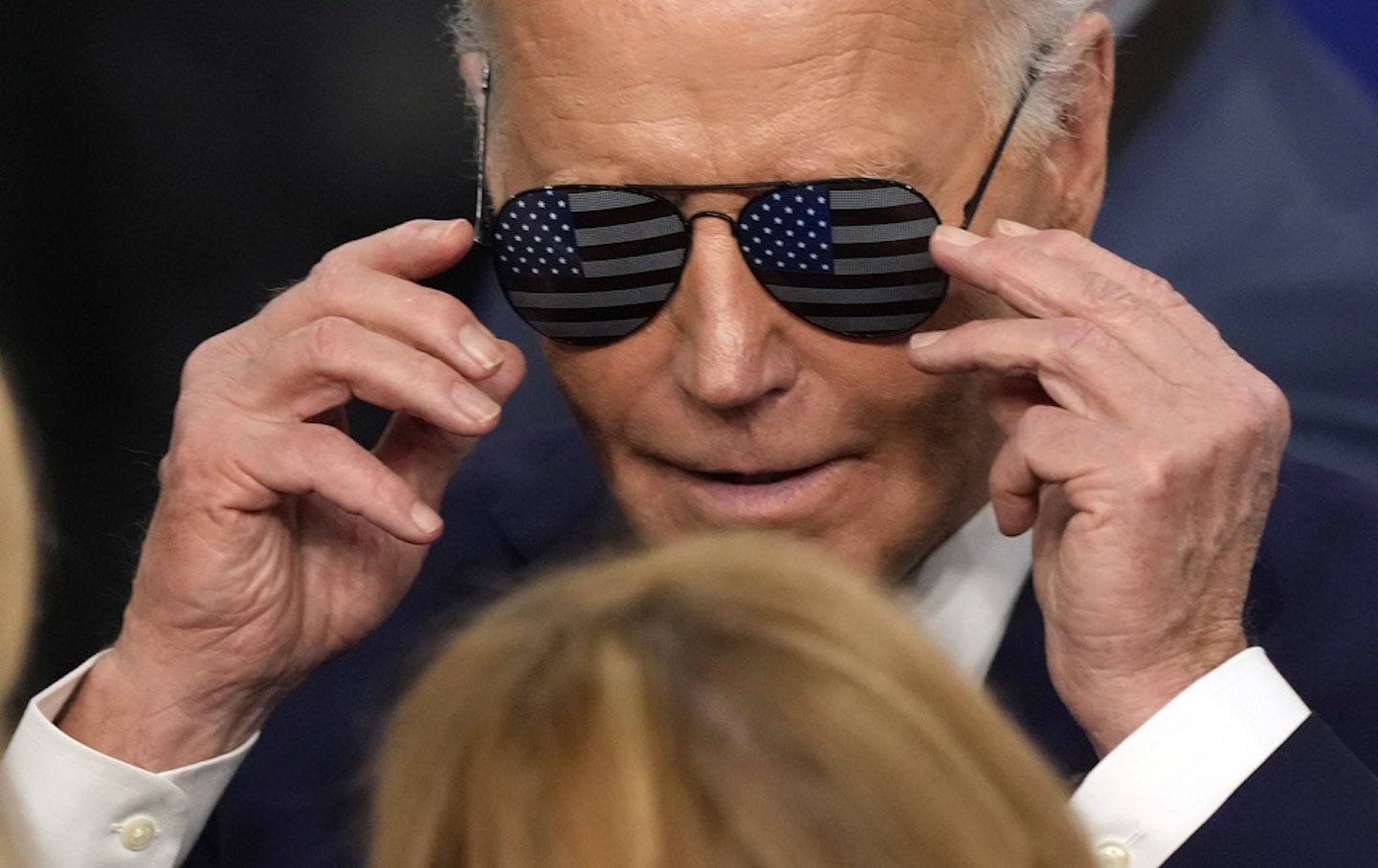Recent policies regarding student debt and cannabis seem like naked appeals to a crucial demographic that cares most about US involvement in Israel’s war on Gaza.

President Joe Biden tries on a pair of sunglasses on May 21, 2024, in Nashua, New Hampshire.
(Robert F. Bukaty / AP Photo)
President Joe Biden has stepped up efforts to reverse his disastrous loss of support among young voters, announcing a new round of cancellations for federal student loans. The initiative, covering $77 billion in debts, will forgive loans for some 160,000 borrowers via existing programs—a total that brings the overall ratio of canceled loans to one in 10, or 5 million borrowers, according to administration officials.
The new program comes on the heels of the White House’s decision to reclassify cannabis as a Schedule 3 drug, in order to reduce criminal penalties for its use—and just ahead of the Justice Department’s antitrust suit against the parent company of Ticketmaster, whose price gouging is the bane of music fans. It’s hard to avoid the sense that this grab bag of policy incentives is a desperate bid by Biden reelection strategists to divert attention from the main issue throttling his support among voters in the 18-to-34 demographic: his bear-hug support for Israel’s brutal and inhumane war in Gaza, whose grip has only recently begun to loosen with his threats to withhold US military aid in the event of an Israeli offensive in Rafah. If only we can hunt up enough spare income for kids to get high with at concerts, Biden campaign officials seem to reckon, then they’ll forget about this damn war and the cowardly nationwide crackdown on campus protests against it.
There’s a deeper irony embedded in these don’t-look-at-Gaza pitches to young voters. In reprising the Biden White House’s earlier overtures toward policies aimed at ameliorating inequality for younger Americans, Biden’s campaign is treating them the same way that presidential candidates have historically sidled up to older voters—giving them one-off, interest-group emollients to nail down their allegiance. That was how, for example, George W. Bush wound up pushing through an ambitious if ill-conceived bill to expand Medicare coverage ahead of his 2004 reelection bid; it was also how Barack Obama relinquished the already doomed “grand bargain” with the Republican Congress on entitlement spending, and stressed the granny-starving policy preferences of Mitt Romney and Paul Ryan in his 2012 reelection campaign.
The crafting of election-year sops to key demographics is of course a storied tradition for incumbent presidents seeking reelection, but the fistful of youth-themed Biden policies is striking in overlooking the basis of his formidable advantage over Trump among young voters in 2020. Back then, young voters were drawn to Biden in disproportionate numbers because Biden was able to align his message about Trump’s unstable and authoritarian track record with the surge of activist protest surr



















































